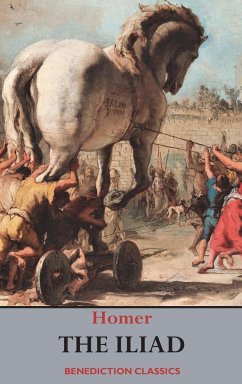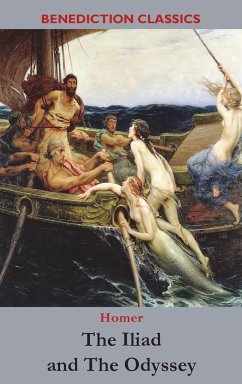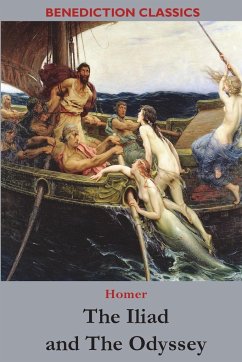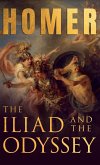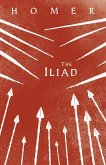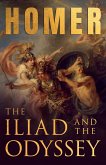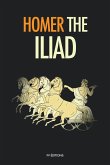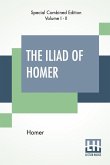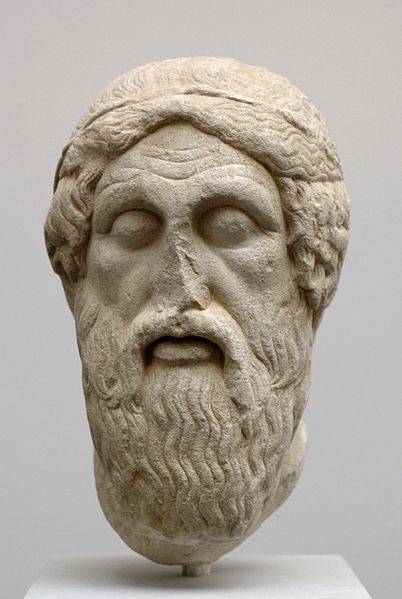The Iliad is the earliest work of Western literature, and along with the Odyssey is the wellspring for much of Western culture. Beginning "Sing, goddess, the anger of Peleus' son Achilles / and its devastation" the Iliad describes the devastation unleashed by Achilles's rage, engulfing soldier and civilian, hero and coward, ruler and slave and even women and children. It is a story of heroes of immense pride and animal strength operating in their element. But it is much more than a great war epic. Homer creates complex human characters. A Greek and Trojan pair, Diomedes and Glaucus, meet on the battlefield, but realizing that they have an ancestral connection, they exchange conversation and armour rather than taunts and blows. King Priam kisses the hands of Achilles, saying "I have endured what no one on earth has endured. I have kissed the hands of the man who killed my son," an act which provokes deep sympathy in Achilles, who in turn returns the body of heroic Hector which he had defiled. The nearly invincible Ajax struggles to choose between heroic glory on the battlefield and the blessing of returning to the beloved land of his fathers. The Iliad is the story of the Trojan War, but much more: it has many tender scenes, it critiques the idea of the hero and it examines the role of the Gods in history. Homer was called "the teacher of all Greece," and "the leader of Greek culture," by Plato. Indeed, in the classical age, the Greeks regarded the Iliad and Odyssey as much more than works of literature; they knew much of them by heart, and they valued them as symbols of Hellenic unity and heroism but also as sources of moral and even practical instruction. Homer's works have been studied, quoted and translated in every corner of Europe and his influence on the Western imagination is immense. This prose edition was translated by Samuel Butler, the iconoclastic English author of the Utopian satirical novel Erewhon and the semi-autobiographical novel The Way of All Flesh. The latter was published posthumously as he was afraid to publish it in his lifetime.
Hinweis: Dieser Artikel kann nur an eine deutsche Lieferadresse ausgeliefert werden.
Hinweis: Dieser Artikel kann nur an eine deutsche Lieferadresse ausgeliefert werden.

